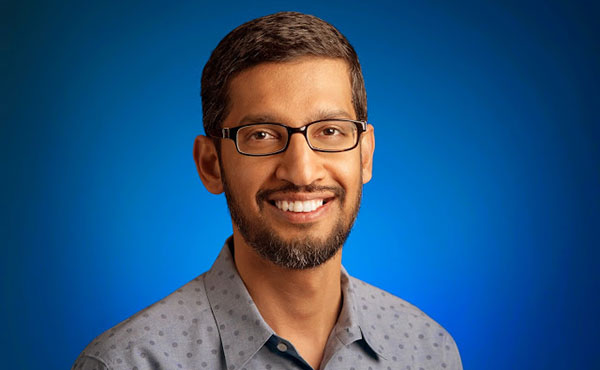“A” is for new Google parent company “Alphabet,” for Sundar Pichai’s “ascension” to CEO, and for a slimmed-down search engine company that seeks to become more “agile.”
After Google cofounder Larry Page’s Tuesday announcement that he and cofounder Sergey Brin were stepping back to manage Google’s divisions through the newly formed Alphabet Holdings, consumers may wonder if that “A” also stands for “altruism.”
Page and Sergey had been in search of a perch that would give them a better vantage point on Google and all of the companies that comprise it. They promoted Sundar Pichai to head of Apps and Chrome last fall, in an effort to step away from day-to-day duties, but that wasn’t enough.
Pichai’s Ascension
Pichai has been piling on responsibilities since his arrival at Google in 2004. The former vice president of product helped launch Chrome in 2008, and began overseeing Google Apps last fall.
Now, in addition to managing Web apps such as Gmail and Google Calendar, Pichai is in charge of all the vital organs inside the newly slim Google: Android, Search, Maps, YouTube and others.
Pichai’s work ethic and congeniality helped drive his ascension to the top, and he’ll need both to redirect the mounting mistrust of Google — his greatest challenge yet.
It’s possible, though, said Rob Enderle, principal analyst at the Enderle Group. A concerted effort to change an image can be successful.
“We saw IBM go from negative brand equity to positive in the 1990s, though it took a rather impressively large marketing investment to make that happen,” he told TechNewsWorld, “and Google hasn’t shown they have either the skills or the will for this kind of an effort. So Sundar Pichai could fix this — but there is nothing in his background or skill set that suggests he will.”
Google’s Altruism
Though Google informally adopted the motto “don’t be evil,” its efforts to be “good” often have been undermined by its aggressive business practices.
Among its controversial practices are enabling apps to upload data secretly to Google Cloud, tracking users’ locations, performing analytics that potentially could violate users’ privacy, and doing who-knows-what in the clandestine Google X Labs — to name just a few.
At the heart of it all is revenue, said Michael Dub, a partner at DXAgency.
“Understanding people’s previous behavior and actions will enable Google to continually improve and predict future behavior,” he told TechNewsWorld, “and therefore provide them an advertising advantage by using that data to deliver the most relevant ad or offer.”
Google’s real customers are its advertising partners, said Enderle, and consumers are the products it sells.
However, “this change also should result in a higher-quality product, and that suggests that users should see improvements that will engage them more,” he said.
Google has to own predictive data in order to remain competitive in the Information Age, said Dub, and this latest move to stay competitive brings with it both good and bad for consumers.
The good, said Dub, is that “the likelihood of receiving a relevant offer or coupon or message based on individual preference will increase.”
Conversely, the bad is that “the likelihood of receiving unwanted communications and offers based on behavior will also increase, further limiting an individual’s ability to remain anonymous.”
Greater Agility
Now in a better position to focus on being Google, freed of business units that Page described as being “far afield” from the core, the company should enjoy marked improvement in its agility.
All of Alphabet’s companies are to be headed up by strong CEOs, said Page, who’ll have both Google cofounders at their service.
The agility gained with the Alphabet umbrella likely will result in a stronger focus on customers, said Enderle — and it likely will see those strong CEOs searching for more ways to monetize the products and services offered by their respective companies.
If Google — or Alphabet — doesn’t undertake a strong marketing campaign to educate consumers about the changes, they could backfire, he suggested.
“Users might get improvements they don’t easily see,” Enderle noted, “and react adversely to the efforts to more aggressively monetize them, concluding in the end that this move wasn’t in their best interests.”



















































